HR Administration Skills
Course Overview

The presence of Human Resources (HR) administration skills is essential to the success of every business and every employee. The role of HRM administrators is challenging due to the ever-changing nature of Human Resources (HR) and the diverse needs of employers and employees. The function can be a focal point of contact for employees and is also essential for the smooth operation of the HRM Department.
Develop the HR Administration skills and knowledge is required to help contribute towards the effectiveness of your company’s HR team, with this five-days course.
Goal of Course:
This HR Administration Skills training program provides a comprehensive overview of the latest tools and techniques for effective HRM to equip participants with the latest insight, knowledge and skills and help them learn the skills required and the role of the HR Administrator in any type of organisation.
During this HR administration skills training program, deleagtes will develop the skills needed to be successful in their role and add value to their team and organisation. They will learn the various processes involved, the systems used, and the skills required to be successful in the HR Administrator role. They will explore several activities ranging from recruitment interviews through training administration and performance appraisals – discovering the skills required and the role of the HR Administrator in the process.
Duration:
5 days
Language:
English
Training Objectives
- Understand Human resources and its main roles including HR Cycles
- Understand the ‘best practice’ approach to the key administrative activities
- Identify the role of HR Administrators within the HR structure of their organization.
- Develop competencies required for successful HR Administrators.
- Distinguish between various types of organizational structures and develop structures using Microsoft Visio.
- Understand the core functions of HR systems and determine business requirements for their organization’s HR system.
- Develop HR reports using different types of graphs and templates
- Learn best practices in working with employees and assisting with problems
- Help to plan and administer performance appraisals
- Gain awareness of employee resourcing, recruitment & reward
- Learn critical administrative work in training and development
- Identify legal documents required to collect and maintain for employees.
Customized Learning
Module 1: Human Resources and its Pillars
- Introducing Human Resource Management (HRM)
- Main activities, responsibilities and tasks of HRM
- Strategic HRM and HR Administration
- The new models of HRM
- Administration and business support
- HR And Its New Challenging Roles
- HRD & HRO
- The HR Competency Module
- Competencies Frame Work
- HR as Strategic Business Partner
- HR & ROI
Module 2: The HR Administrator in Organizations
- Major Roles and Responsibilities of HR Administrators
- The HR Administrator’s Job Description
- The HR Administrator’s Position within the HR Department
- Professional Qualifications as a Competitive Advantage
- Competencies of Successful Administrators
- Technical Competencies
- Behavioral Competencies
- The Evolving Role of the HR Administrator
Module 3: Introduction to Organizational Structures
- Definition and Purpose
- Types of Organizational Structures
- Advantages and Disadvantages of Various Structures
- Examples of Structures for a Number of Organizations
- Tools Used to Draw Organizational Structures
- Workshop: Using Microsoft Visio in Drawing Organizational Structures
Module 4: Working with Human Resources Information Systems (HRIS)
- Functions and Features of HR Systems
- Legal issues of security and data protection
- Determining Business Requirements
- Developing Assessment Criteria to be Used for Evaluating Different Systems
- Assessing and Evaluating Existing HR Systems
Module 5: HR System, Measurements and Reporting
- Research Terms and Techniques
- Frequently used HR Metrics
- Calculating HR Metrics
- Recruitment Metrics
- Retention Metrics
- Compensation/Benefits Metrics
- Training and Development Metrics
- Reporting Methods and Examples: Charts and Graphs
Module 6: HR Administration and Performance Management
- Measuring and reducing absenteeism
- Introduction to HR databases and computer systems
- Security and confidentiality of employee records
- Performance management in a multi-cultural setting
- Appraisal systems that work
Module 7: Human Resources Role in Recruitment, Resourcing & Reward
- Pay and reward, compensation and benefits
- Total reward and retention
- The stages of recruitment and selection
- The use and limitations of aptitude tests and psychometrics
- Assessment and development centres
Module 8: Effective Training Administration
- Introduction to Training and Development
- Training Administration
- What is training needs analysis (TNA)?
- Induction and basic job training for new employees
- The science of adult learning
- Learning Styles
- The Training co-ordinator
- The Training cycle
- An overview of training evaluation methods
Module 9: Employee Documentation and Record Keeping
- Purpose and Objective of Record Keeping
- Essential steps in employee record security and confidentiality
- Employee Files: Legal Documents to Maintain
- Developing an Orientation Package: Documents to Provide to New Hires
- Policies, Procedures and Work Rules
- Developing an Organization’s Employee Handbook
- Purpose of Handbook
- Sections of the Handbook
- Process of Developing Handbook
Customized Learning
Leap To Success is offering a variety of learning options to meet current realities and can be adapted to suit your business needs. These options include variants of online, blended and on-site course formats.
Face To Face Learning
Enabling you to have a face to face interactive and engaging learning experiences led by renowned industry experts and thought leaders with extensive practical experience who will employ a variety of interactive learning techniques, including short high-impact videos, case studies, assessments, role plays, in addition to on-going support.
Virtual Learning Labs
Interactive online learning held in real-time using Zoom and are led by international subject matter experts who incorporate case studies, breakout rooms, guided practice, simulations and discussions to maximise your learning experience.
General Methodology
Similar to any L2S training program, this program offers an interactive learning experience in which will allow the delegates to reflect on their learning through an informative, indulging, and fun classroom experience. The design of the training session focuses on the following attributes.
Concrete Experience: The delegates will learn by doing
Reflective Observation: Reflecting on the newly experienced skill-set
Abstract Conceptualization: Developing deeper understanding to the learned concepts
Active Experimentation: Providing the delegates with realistic tools that can be tested in the real life
Activities Brief:
Games & Activities conducted during the Training
The Appraisal Game:
Delegates can practise their appraisal skills in a risk-free environment. The Appraisal Game defines ‘appraisal’, challenges assumptions, establishes basic principles and practices, and puts them to the test. Great introduction.
Benefit:
- The true definition of appraisal
- To identify the problems people have with appraisal
- The real benefits of appraisal
- To understand how an appraisal process should work
- The importance of preparation – for both parties
- How to conduct an appraisal interview
- The concept of “critical incidents
The Assessment:
Great value pack! Assess staff competencies in four key areas – time management, teamwork, leadership and decision-making – and plan strategies for better performance.
Learning Objectives:
- A range of key competencies in four separate skills areas
- To look objectively at their own competence levels
- To identify their strengths and weaknesses
- To continually assess their own contribution back at work
Roadblock:
The Roadblocks Toolkit is designed for the manager and uses the basic Square Wheels facilitation ideas as groundwork for generating group problem solving as well as peer pressure for Performance Improvement.
It uses the simple concept that no one can “empower” another and that many people in the workplace choose to be un-empowered and let things get in the way of personal or group performance. The purpose of this toolkit is to help a work group focus on what we call Dis-Un-Empowerment, or the removal of the things that get in the way of moving forward. Roadblock removal, especially done in a peer-supported context, is both engaging and optimizing.
The Action Cantered Leader:
Experiential game allows the delegates to understand the different skills attribute that the leader should focus on by balancing demands between Team, Tasks, and Individuals.
Action Maze Exercise:
An interactive, experiential learning group exercise that emphasizes effective Leadership skills and giving proper direction.
Mind The GAP:
Mind the Gap! Is an innovative, engaging and non-threatening way to identify those little gaps between average performance and top-notch excellence.
Mind the Gap! Is a great way of reminding staff – in an engaging format – of what is expected of them. Key areas in performance are bench-marked, gaps are revealed and there’s the opportunity for participants to air views and agree how to address shortfalls.The activity is inspired by Olympic cycling coach, Sir David Brailsford, and his proven methods of improvement through marginal gains.It enables you to target your training to where it’s needed most. It very quickly identifies the gaps in staff performance that need most attention.
The format, using a ‘traffic light system’ of counters and ‘secret’ boxes’ – all of which participants thoroughly enjoy – elicits their anonymous views on four key areas.
Star Performer Indicator:
Case study which is worked within smaller groups. By the end of the case study participant will be able as well to conduct self-assessment based on Reldan S. Nedler Research on Leading with Emotional Intelligence. This interactive simulation focuses on hand-on strategies for building confident and collaborative star performers.
The Coaching Wheel:
Coaching is about involving and engaging and changing the picture of how things can be. One needs to develop a sense of ownership and deal with issues of perceived roadblocks to generate alternative choices.
This Square Wheels Coaching for Improved Performance Toolkit anchors to the ability of the Square Wheels® cartoons to function as a projective instrument, much like an inkblot or Rorschach Test.
This focus on a desired future outcome produces positive thinking and centers on dealing with the discomfort of making changes. This Toolkit has a variety of tools for assisting individuals and groups in any improvement process. It will help you better plan a discussion and give you a solid framework for coaching and gaining the other person’s active participation and involvement.
Sign Up For the Course
